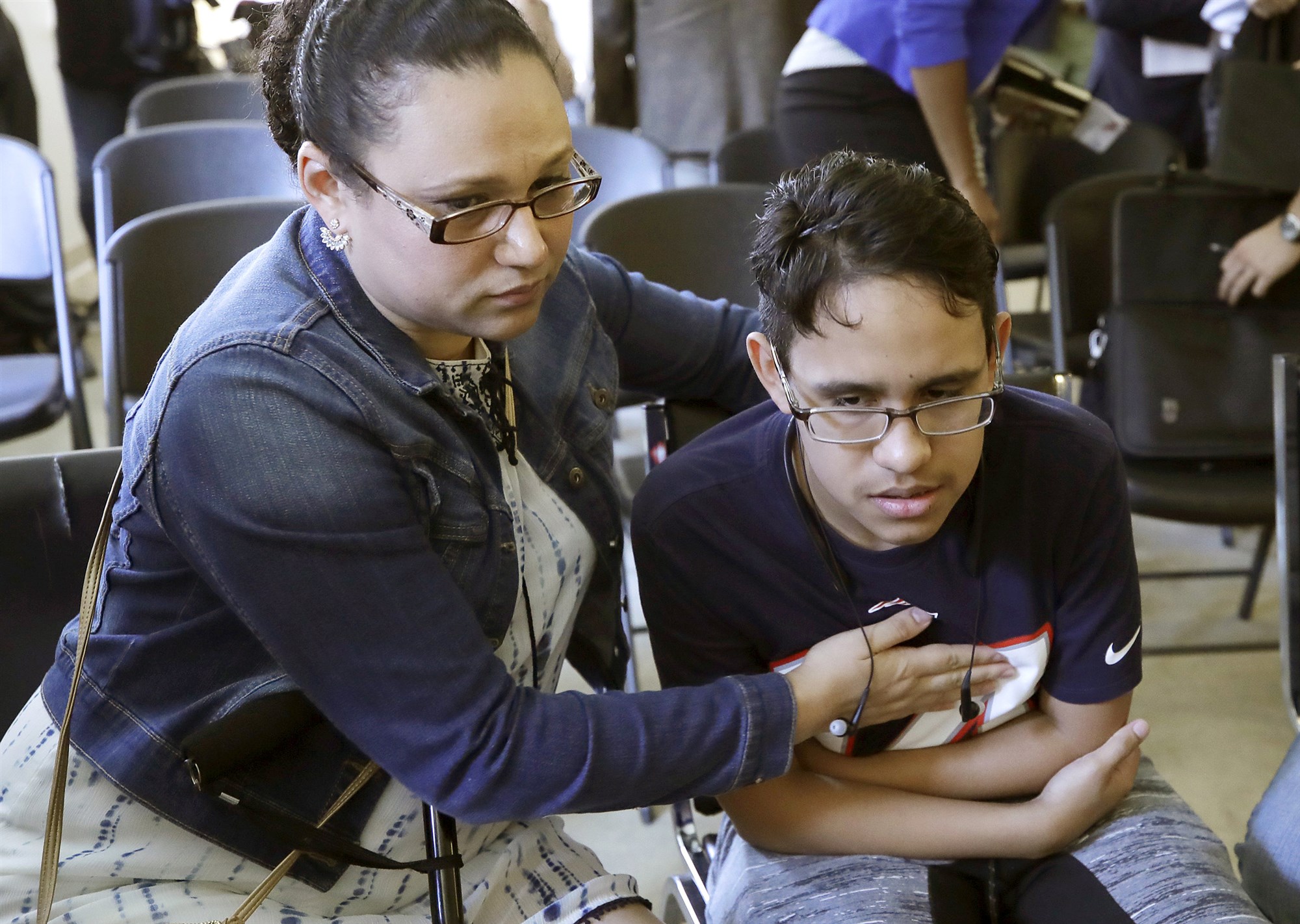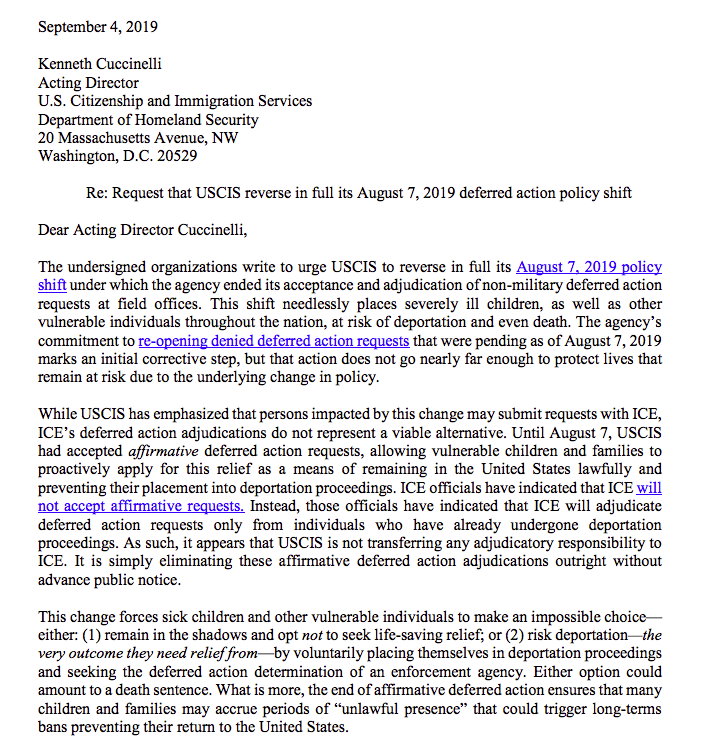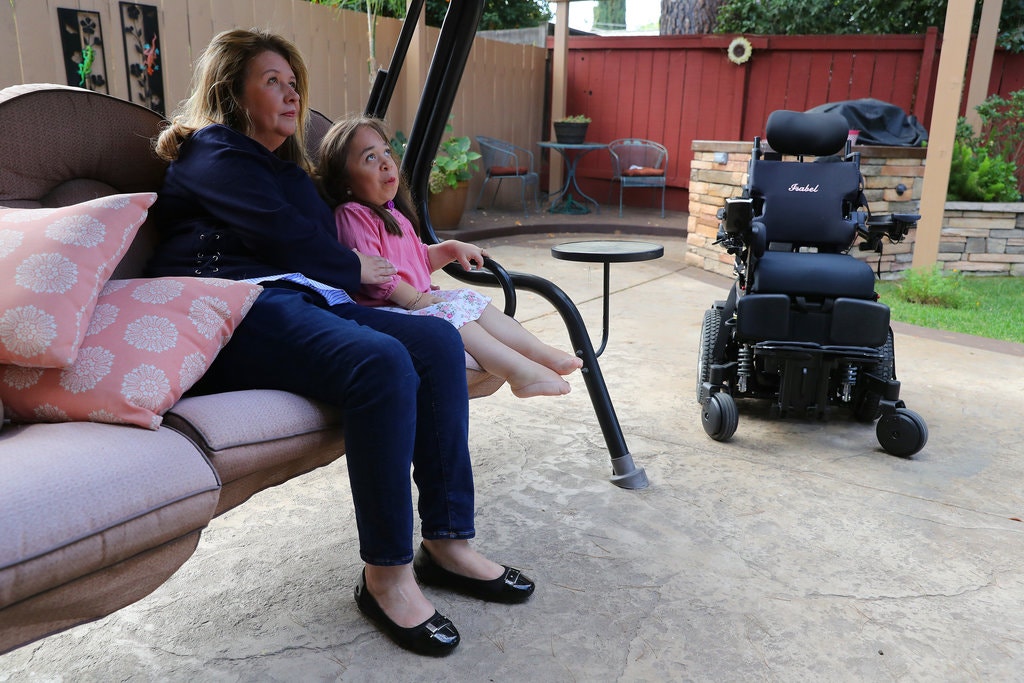
Trump Administration backtracks, in part, on deportation of critically ill immigrants, including children
Last week, Voices for Human Needs reported on a new Trump Administration policy – unannounced, and implemented with no input from the public – that ended medical deferred status, which allows immigrants with serious health issues to remain in the U.S. for treatment.

Mariela Sanchez, of Honduras, comforts her son, Jonathan, 16, during a news conference on Aug. 26, 2019, in Boston. The Sanchez family came to the United States seeking treatment for Jonathan’s cystic fibrosis. Photo credit: Elise Amendola / AP
Today there is some good news and a lot of bad news. The good news is that over the Labor Day weekend, the Trump Administration backtracked and announced that it will no longer order current applicants for medical deferred status to leave the country within 33 days, which would mean forgoing treatment. Among the immigrants previously under order to leave were critically ill children suffering from HIV, heart ailments, cancer, muscular dystrophy, cystic fibrosis, and other ailments.
The bad news is that the Trump Administration’s announcement does not reinstate the medical deferments for future immigrants with severe health issues. “They created a problem and now pretend to solve it,” said Mahsa Khanbabai, New England Chair for the American Immigration Lawyers Association.
Within the past few weeks, immigrant families with extremely ill children began receiving terse letters from the federal government. The letters informed the families that their application to stay in the U.S. under “medical deferred action” had been denied, and they had 33 days to leave the country. A number of these letters arrived midway through the 33-day grace period.
Although the focus of much of the controversy has centered on extremely ill immigrant children, the policy affects adult immigrants as well. Among those who had been impacted by the administration’s decision to end the program was Maria Isabel Bueso, 24, who has participated in several medical studies, including a drug trial that resulted in a treatment for her rare disease, which causes dwarfism and other physical deformities.
Khanbabai, in comments made to CommonWealth Magazine, added, “They are not solving the problem with this new pronouncement, they are just punting it to be dealt with later.”
Other groups fighting to protect immigrants agree.

This week, a group letter was being circulated that calls the Administration’s Labor Day announcement “an initial corrective step,” but calls on Kenneth Cuccinelli, Acting Director of the U.S. Citizenship & Immigration Services (USCIS) to reverse in full its deferred action policy shift, which went into effect Aug. 7 with no public announcement. The letter was signed by more than 150 local, state and national groups, including CHN; you can read the letter and see who signed here. The list includes children’s and disability rights groups; health care groups, immigrant advocacy groups; and others.
The sign-on letter notes that until Aug. 7, USCIS had accepted affirmative deferred action requests, allowing vulnerable children and families to proactively apply for relief as a means of remaining in the United States lawfully and preventing their placement into deportation proceedings.
“There is no valid rationale for the agency’s Aug. 7 shift in deferred action policy,” the letter states. “And while the reopening of denied requests pending as of that date is necessary corrective action, it is wholly insufficient to prevent needless deportations and deaths. We therefore respectfully request that you immediately and fully restore USCIS’s deferred adjudications.”
In an unsigned statement distributed to reporters on Monday and posted on the agency’s website, USCIS said, “Today U.S. Citizenship & Immigration Services announced it will reopen non-military deferred action cases that were pending on Aug. 7. Letters will be sent this week re-opening all cases that were pending on Aug. 7.”
Somewhat ominously, the statement continued, “While limiting USCIS’ role in deferred action is appropriate, USCIS will complete the caseload that was pending on August 7….As USCIS’ deferred action caseload is reduced, the career employees who decide such cases will be more available to address other types of legal immigration applications on a more efficient basis.”
Those two sentences drew the ire of the authors and signatories of the sign-on letter. First, they pointed out that deferred action requests are completely lawful. And, the letter added, “The undersigned organizations reject any suggestion that children with severe medical conditions such as cancer, epilepsy, and cystic fibrosis, or other individuals whose survival could hinge on deferred action grants, are undeserving of USCIS’s resources.”
Khanbabai, the immigrant rights lawyer, has four clients who could have been deported before the Trump Administration reversed course for current deferred status applicants, including a 14-year-old girl with a congenital heart condition. “While families are grateful that their cases will be reviewed, they are concerned about what might come after that,” she said.
Meanwhile, there are hints that confusion about the future of the deferred status policy is not likely to be cleared up any time soon.

Maria Isabel Bueso, 24, sits with her mother Karla Bueso last week at their home in Concord, Ca. The Bueso family had been ordered to leave the country despite the treatment that Isabel is receiving for her illnesses. Photo Credit: Jim Wilson/ The New York Times
In the unsigned statement distributed to reporters on Monday and posted to the USCIS website, the agency noted that deportation proceedings had not been initiated against anyone who had received the letters mailed out in August to immigrant families, many with sick children. However, the statement did not say whether USCIS would continue to grant immigrants extensions to stay in the country or whether the program would be continued after current applications are processed.
When asked for clarification by a New York Times reporter, an agency official said the agency “is taking immediate corrective action to reopen previously pending cases for consideration.”
“Whether a very limited version of deferred action will continue forward at USCIS is still under review,” said the official, who agreed to speak only on background. “More information will be forthcoming.”

